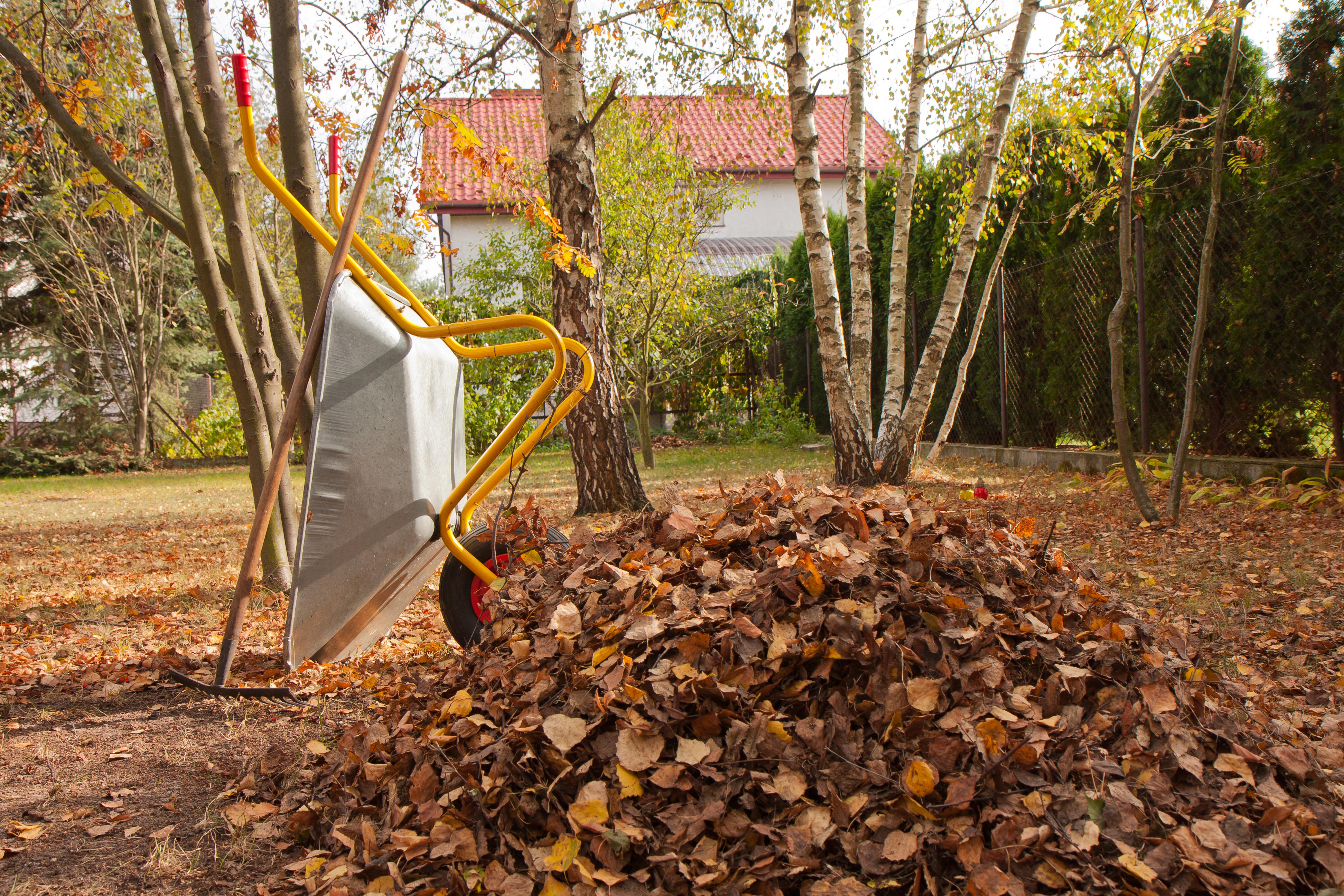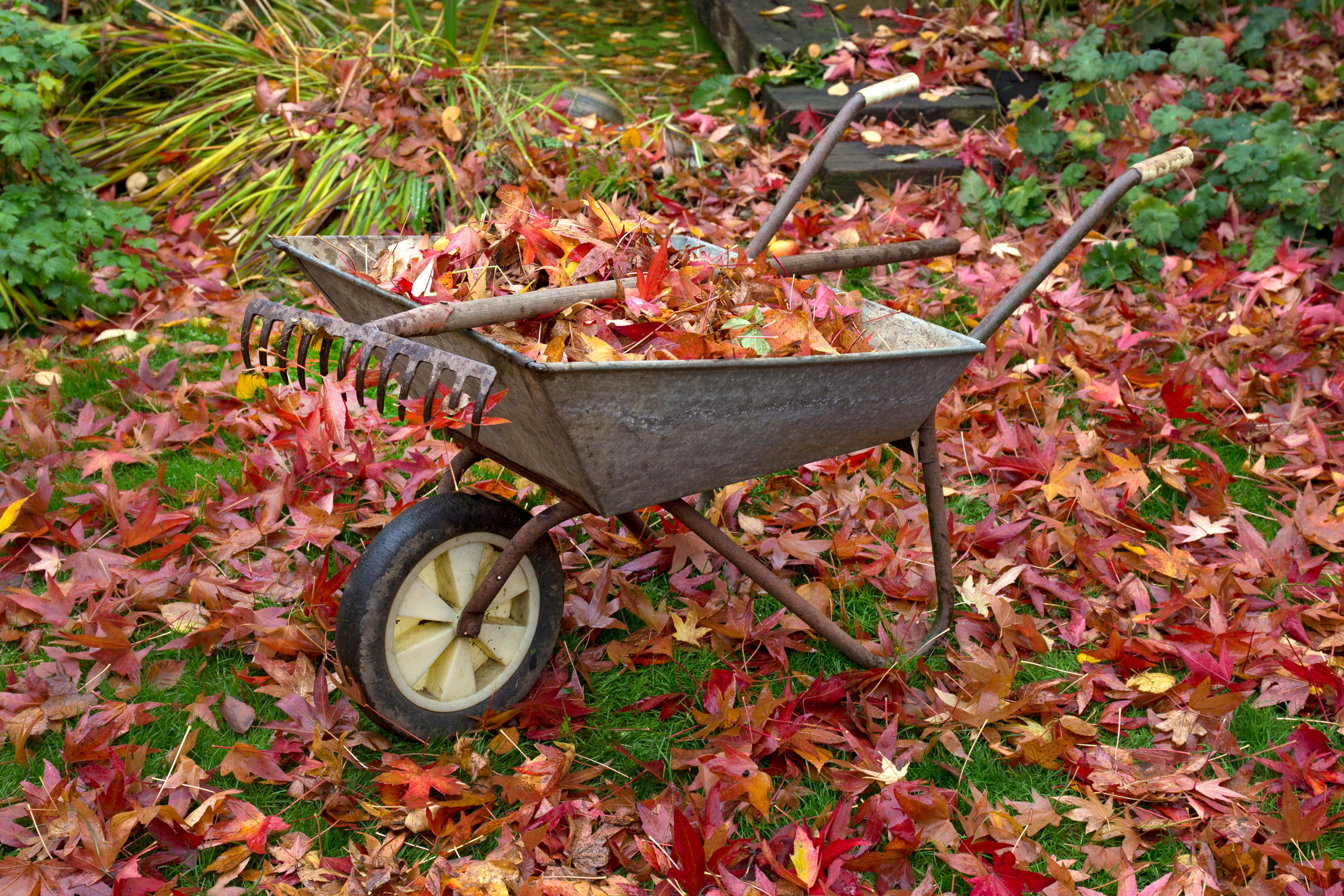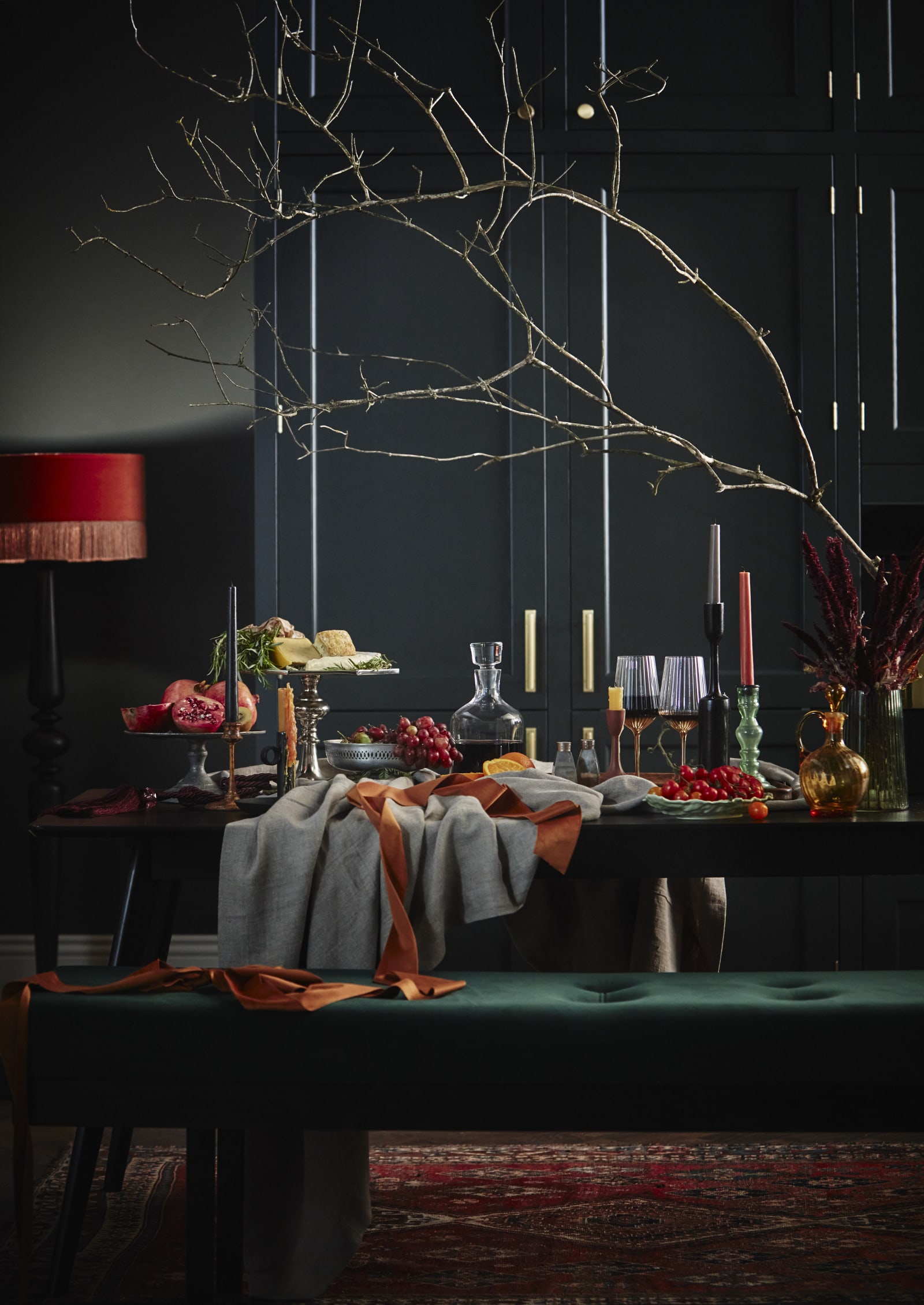5 genius uses for dead leaves that will benefit your backyard during fall
Ever wondered what to do with all those fallen leaves in your backyard? Repurpose them using these expert gardening tips and keep your lawn and garden happy and healthy


The Livingetc newsletters are your inside source for what’s shaping interiors now - and what’s next. Discover trend forecasts, smart style ideas, and curated shopping inspiration that brings design to life. Subscribe today and stay ahead of the curve.
You are now subscribed
Your newsletter sign-up was successful
What should you do with dead leaves during fall? After the beautiful spectacle of yellow, red and brown leaves has lit up the trees in your backyard, you soon find yourself raking mounds of them on your lawn, armed with a leaf blower as back-up. While piles of crunchy leaves may have entertained you for hours as a child, it's hard to know what to do with them in adulthood. Surely there's a better use for them than the bin?
Ask any gardener and they'll rage about the multitude of uses dead leaves can have in your backyard. From nutritious compost to weed suppressing mulch, this humble type of organic matter has a whole host of benefits for your backyard, and they're completely free, too! It's hard to ignore the fact that fall leaves are one of the most beautiful sights any of the seasons have to offer. As such, we shouldn't underestimate their aesthetic quality inside our homes either.
While we aren't denying the many uses dead leaves have, it's hard to know where to start when faced with a pile of damp, rotting sludge in front of you. Luckily, we've asked gardening expert Graham Barrett who has a few tricks up his for repurposing dead leaves to help benefit your garden (as well as a few for your interior, too).

Lilith is an expert at following news and trends across the world of interior design. She's committed to helping readers make the best choices in their homes (and gardens) through sharing practical tips and guides. For this piece she asked an expert gardener for advice on how to put those dead leaves to good use this fall.
1. Mow over dead leaves to improve lawn health
There's no point trying to disguise the fact that raking is a tiring and time consuming chore. After all, there was a reason the leaf blower was invented. If raking leaves from your lawn is the bane of your live, Graham, gardening expert at Bean Bags suggests mowing over them to contribute to your lawn care.
'Every week, you should aim to mow over your dead leaves,' he explains. 'The blades will chop up the leaves and distribute them throughout your lawn as mulch. This is especially good if you're starting to notice moss growing on your lawn, as mulching will help prevent moss from taking over.'
According to Graham, mowing over dead leaves is also beneficial for your plants, too. 'Over time, the leaf particles will be broken down into nutrients in the soil, which help your plants build resilience by developing more robust root systems.'
2. Create mulch to suppress weeds
Mulch is the holy grail of tips for modern gardens in fall. It's basically a layer of organic material that helps to improve fertility, insulate plant roots, and conserve soil moisture. 'In addition, mulch helps suppress weeds by blocking sunlight from reaching their roots,' says Graham.
The Livingetc newsletters are your inside source for what’s shaping interiors now - and what’s next. Discover trend forecasts, smart style ideas, and curated shopping inspiration that brings design to life. Subscribe today and stay ahead of the curve.
Mulch can be made up of any organic matter from your backyard like wood chips or grass clippings, but leaves can also make excellent mulch. 'They're easy to collect, last longer than other types of mulch (such as hay or newspaper), and do not need to be replaced as often as pine needles or bark nuggets,' Graham adds.
To make mulch out of fallen leaves, it's best to shred them first. Graham suggest using your lawn mower to do so, but you'll need to make sure they're dry rather than wet. It's also possible to collect damp leaves and lay them on your flower beds without shredding them. You'll notice that they slowly disintegrate or disappear as worms bring them underground, helping to fertilize and aerate the soil.
Mulch can also be used to insulate any root vegetables you might be growing through fall such as carrots, kale, and leeks. 'Simply cover them with the dead leaves and they should harvest throughout fall and winter,' Graham says.

3. Add them to your compost pile
This one might be an obvious choice, but it deserves a place on the list nonetheless. If you have a compost pile (or a bin), this is the simplest solution to putting your dead leaves to good use.
'If you have a lot of dead leaves, this is definitely the perfect excuse to even create a compost pile,' Graham notes. 'You can make compost with leaves alone, or combine them with other organic materials like grass clippings and kitchen scraps. Eventually, they will break down into rich soil that can be used as fertilizer for your plants.'
Graham advises to let the compost sit all winter, turning the pile occasionally to aerate it. 'If it starts to appear dry, you just need to add water from your garden hose, whilst turning with a pitchfork,' he says. 'By the time spring rolls around, you should have some nice compost to mix into your garden soil.'
If you have a small garden that lacks space for a compost pile, try a small compact compost bin like this from Amazon. If you're on a budget, you can still make leaf mould (soil made purely from leaf compost) but simply raking dead leaves into a pile in the corner of your backyard. 'After a year, the leaves should have disintegrated into a dark, sweet-smelling, soil conditioner that is high in calcium and magnesium,' says Graham. 'Combining this with the fact that it retains water easily, it’s exceptional for potting soils as well as vegetable and flower patches.'
It's best to collect leaves after they've had a chance to dry out a bit, and avoiding raking them after heavy rainfall because, as Graham notes, 'otherwise they won't break down very well in the compost pile.'
4. Insulate your shed with dry leaves
Since we've already mentioned how effective leaves can be at insulating other plants, it comes as no surprise that they can insulate other spaces, too.
'If you have a shed or other small structure in your yard, you can use dead leaves as insulation,' says Graham. 'Simply pile them up inside the structure and then cover them with a layer of plastic sheeting. The plastic will keep the moisture locked in and also protect the leaves from being blown away by strong winds.'
While it might be tempting to pile the leaves into bin bags to act as insulation, Graham stresses you ought to avoid this. 'The main reason for this is that they will start to rot inside the bag and create an unpleasant smell,' he explains. 'Bagging also makes it more difficult to use them as mulch in your garden, so you should always spread them out and cover with a tarp rather than bag them up.'

5. Bring them inside to add to your home decor
Finally, we can't finish discussing the many uses of fall leaves without mentioning their aesthetic value. Bring the outside in and add a little seasonality into your home by decorating your space with dried leaves in a range of colors.
For a beautiful fall table decor idea, style your dining table with fall foliage including dried leaves or sprigs of berries next time you host a dinner party. 'If you want to create something more elaborate, try placing some dried flowers inside a large bowl filled with brown, orange, and yellow leaves that are all about the same size,' suggests Graham.

Lilith Hudson is a freelance writer and regular contributor to Livingetc. She holds an MA in Magazine Journalism from City, University of London, and has written for various titles including Homes & Gardens, House Beautiful, Advnture, the Saturday Times Magazine, Evening Standard, DJ Mag, Metro, and The Simple Things Magazine.
Prior to going freelance, Lilith was the News and Trends Editor at Livingetc. It was a role that helped her develop a keen eye for spotting all the latest micro-trends, interior hacks, and viral decor must-haves you need in your home. With a constant ear to the ground on the design scene, she's ahead of the curve when it comes to the latest color that's sweeping interiors or the hot new style to decorate our homes.